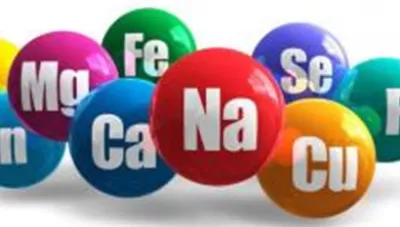Nutritional value
Agriculture is at the basis of food production, not 'food-processing' companies! N-xt realises that this also puts us at the basis of quality and as the quality is poor, there is a lot of potential for agriculture. The fact that many diseases in humans and animals are food-related means that we no longer cultivate the minerals and vitamins in our crops. Could this be related to our soil health?
It is our experience that consumers are increasingly choosing health and wellbeing because, consciously or subconsciously, they realise that life is limited without either of those aspects. Professors from the medical world tell us that our existing knowledge and quality of medication is unable to maintain current health levels. "We are working on the back of the problem, but need to be at the front... healthy food", said a professor from the medical faculty. A challenge for agriculture!

Nutritious food
If we only spend a little time on the basic principles of our own body we quickly become aware of the importance of minerals in our food. Funnily enough they are the same minerals we worry about in agriculture!
Physically speaking our body is a mixture of carbon (C), oxygen (O2) and hydrogen (H2). Together with 3.3% nitrogen (N), they account for approximately 90% of total body weight. When we talk about carbohydrates, proteins and fats we mainly talk about these elements. In order to get these substances moving and to keep them moving you need other substances. These substances we know as minerals and trace elements and through their reaction with each other and with carbon, hydrogen and oxygen they determine how your body functions on food, light and air.
Read here about the six most common minerals and their effect on body and behaviour.
As a taster - they are exactly the minerals we should focus on in agriculture, being calcium (Ca), magnesium (Mg), sodium (Na), potassium (K), phosphate (P) and sulphur (S).


